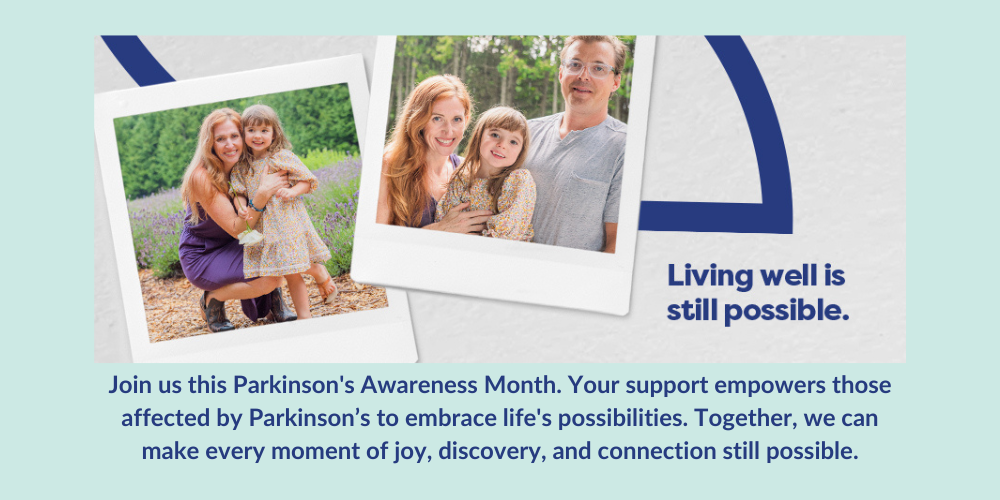Rudy Erfle and Artemis Erfle are a dynamic couple driven by the love of their family to empower their community and people impacted by Parkinson’s. Fourteen years ago, Rudy first noticed a tremor in his hand while playing summer hockey. The diagnosis of Parkinson’s at the age of 47 came as a shock to Rudy and his family, as he had always been active and was younger than the average Parkinson’s diagnosis.
After telling the kids immediately, their daughter Marina, who was thirteen, asked, “is Daddy going to die?” Naturally, this close-knit family was upset. For weeks, Artemis was taken aback, but she eventually realized that “nothing changed from yesterday to today, so we can just deal with it, one day at a time.” Rudy himself, after his first Parkinson Canada run, decided to “live in the moment and make a conscious decision not to complain. There is always someone off worse than you, so you have to make the best of it. You have to accept things and work towards a positive change.”
Following a diagnosis, many people cut down their activities and avoid seeing people. “You start to create your own storyline” explains Rudy, “When you tell yourself life is awful, you start to lose hope. You withdraw. In the beginning, I wanted to quit everything. You shouldn’t quit what you love.”
Rudy’s family originally insisted that he retire from his own business, Rudy Erfle Woodcraft and Cabinetry, building kitchen cabinets, and bathroom vanities, and take it easy but he persisted. He knew keeping busy would keep him in better shape, mentally and physically. Although Rudy is retired now, he is still involved in building. Artemis emphasizes, “People shouldn’t assume that those with Parkinson’s are incapable of doing anything. You do need the support of people around you, but people do need to be patient and let a person with Parkinson’s show up.”
Rudy noticed in getting out there “that you have to be smart about adjusting and inventing solutions. Travelling, especially through an airport, could be awkward. I make it easy for myself, whether it’s equipping my cane with a stick to guide me or just asking for help. Once people identify you as having a disability, not specifically Parkinson’s, they don’t step over you. People automatically help out. But you have to see what works for you. Keep trying and inventing solutions.”
Getting others involved requires opportunity, whether it is raising money or being open about Parkinson’s. “Parkinson Canada has so many great resources. Our whole family was running marathons and on my tenth anniversary of having Parkinson’s I talked to my daughter Marina about raising more money, so we came up with Rudy’s Run.” Rudy said. “It was a big undertaking, but it’s grown and continued from there, including golf tournaments and speaking events. It takes a community.”
Fundraising Your Way – Organize an Active fundraiser
In addition to educating the community about Parkinson’s disease, Rudy’s Run raises funds for research for those living with the disease. If you have an activity that you love, you can start an Active fundraiser too.


